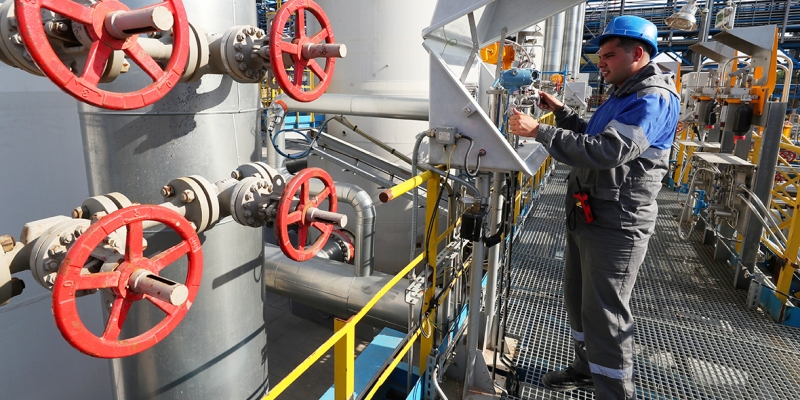Bloomberg states that, although gas supplies to Europe at spot prices could be more profitable, Moscow is interested in long-term contracts. Putin explained this by saying that such a formula provides greater stability

Russian President Vladimir Putin believes that in the context of the gas crisis in the European markets, Russia needs to achieve a transition from spot contracts to long-term contracts from the European Union, Bloomberg writes, citing two sources familiar with the situation. At the same time, the Kremlin does not expect that due to the “gas issue” it will be able to get any concessions from Brussels in political terms or ease tensions with the EU, a source close to the presidential administration told the agency.
The price on the exchange does not reflect the real cost of gas for consumers, since only a small part of gas passes through the exchange. The main gas flow from Russia goes to Europe under long-term contracts. By now, most of them include stock quotes in the price formula, but they are not determined solely by them. Alternativelong-term agreements— spot contracts. They are concluded for a short period of time and are executed within a few days or a month. The price of the resource in spot contracts is as close as possible to stock quotes. The main hub of such gas trading in Europe is the Dutch TTF, where most of the transactions are made according to the formula “a day ahead”.
In addition, Bloomberg interlocutors say, Russia is striving for rapid certification of the Nord Stream-2 pipeline to increase gas supplies to Germany.
Now prices for long-term contracts are lower than spot ones. The cost of 1 thousand cubic meters of gas on the London ICE exchange as of 17:00 Moscow time on October 13 is slightly more than $ 1100. At the same time, at the end of August, Gazprom reported that the projected cost of 1 thousand cubic meters of gas under long-term contracts in Europe is $269.6. This is 30% higher than the previous forecast price, but still four times less than the prices of spot contracts.
Vladimir Putin said that Russia, despite this, is interested in long-term contracts during the plenary session of the Russian Energy Week. “Germany gets not $2 thousand, not $1.5 thousand, but $250-230, a maximum of $300 per thousand cubic meters. “Gazprom” even seems to be losing… But the manufacturer is nevertheless interested inthis stability. Because he knows that he will sell such and such a volume as a minimum for such and such a price as a minimum, and then he builds his investment policy accordingly. And this is beneficial for both the supplier and the consumer,” the president explained Russia’s logic in this situation, the correspondent of RBC reports.
One of the last long-term gas supply contracts concluded by Gazprom is an agreement with Hungary signed at the end of September. It is designed for 15 years, up to 4.5 billion cubic meters will be supplied to Hungary annually. The contract has caused sharp criticism from Ukraine due to the fact that the Ukrainian transit route will not be involved in gas supplies to Hungary – gas will go through Serbia and Austria. The Ministry of Foreign Affairs of Ukraine calledBudapest’s decision to conclude a new long-term contract with Gazprom for the supply of gas bypassing Ukraine is exclusively political and economically unjustified, as well as taken to please the Kremlin and to the detriment of the national interests of Ukraine and Ukrainian-Hungarian relations. These statements led to a diplomatic conflict between Kiev and Budapest.
Subscribe to Telegram RBC Get news faster than anyone

